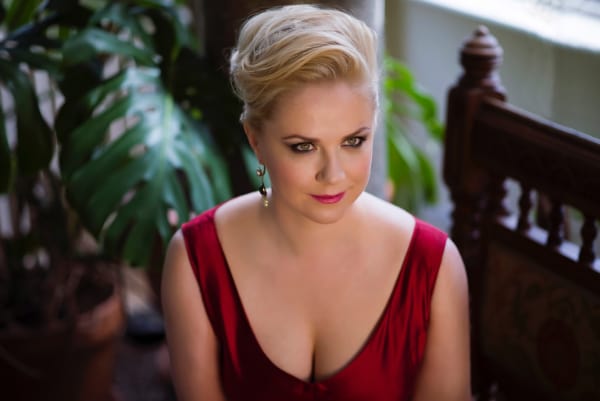– Sofia, good afternoon.
– If you don’t mind, let’s start with a question, which requires a bit of reflection. How has opera changed in the last 10 years and how will opera change in the next 10 years?
My world career started just about 10 years ago. So it’s hard for me to say how the world of European opera had looked like before it. But, of course, I can say that 50 years ago the art of opera was really popular.
– Now we’re seeing full theaters and halls are also completely filled with opera-lovers too..
However, nowadays opera is not for everyone. Unfortunately, especially young people visit theater rarely or even once in a life, just to get in touch with something great and legendary.
I suppose, in opera the stereotypes still rule, for example, in terms of appearance. Now this point has even intensified.
It is also important to note that in 10 years opera has more and more accelerated. Everything goes on faster and faster, as if it’s put on a stream, it never stops. For example, It used to be something extraordinare if an actor (singer) could learn a big role in two weeks, but now it’s quite common. And if someone “jumped” into a difficult role in a day, the next days all the newspapers could tell the stories about it, but nowadays these stories are not so rare.
– Is it possible that this is also related to the business model? Commerce?
Yes, sure. From pure art everything has grown into the machine, which rewrites tones of already known material, each time trying to add something new, some new philosophy. We see less and less magic and mystery on the theatre-scenes. Also, due to the growing role of technologies, it’s become hard for performers to improve and reach the top-level. In the next 10 years, I suppose, nothing will change much. The development of technology for sure will have much influence on opera industry in the nearest future.
– In some way, the energy and personal charisma has become more and more now on the stage nowadays, is it right? Could it be that it sometimes helps to stand out, to outshine the technology?
Absolutely. Energy is very important. You can always feel the energy. Once I was very impressed by Karita Mattila, we had a performance together with Karita. She was moving toward me and singing, the energy was just unimaginable! Of course, Marina Poplavskaya also comes to my mind. She had no frames! She was just over all this. But the important thing is that the audience in the hall and me on stage – we feel the energy of the performers differently.
– If you close your eyes right now, what is the first performance you remember?
Rossini, William Tell in Covent Garden, as the 5-year boy. I’m very proud of this role from an acting point of view. I had to learn a lot of details about the movements, the behavior of boys at that age. I had to find that youthful enthusiasm. And to understand how it could be combined with the music.
– Is there any ritual of the day before the performance? What is important for preparation?
Not really. Just warm up a little bit. But I’ve been on the stage without warm up before. Even in «Der Hölle Rache kocht in meinem Herzen». Just to check the highest note and «let’s go». Because there is a magical transformation that happens to me on the stage, even when I have no voice, as on the Covent Garden stage when I had to sing my debut, I had no voice, I had swollen ligaments. But I had sung the whole role completely. It was a success for me, the whole audience was wildly delighted and had given me a standing ovation.
– I guess inner energy is especially helpful at times like this.
– Can you tell us about your musical preferences beyond classical music?
To be honest, I rarely listen to music at home. But I am a music lover. I like listening jazz, I grow up with bard music. Sometimes, I turn on bard music to fly away from modern world, from the news and reality. I started listening to mantras. Sometimes I fall asleep from them. But I listen to everything. Just for fun too. Even hardcore.
– Sofia, thank you for the interview, for your opinions and the time.
